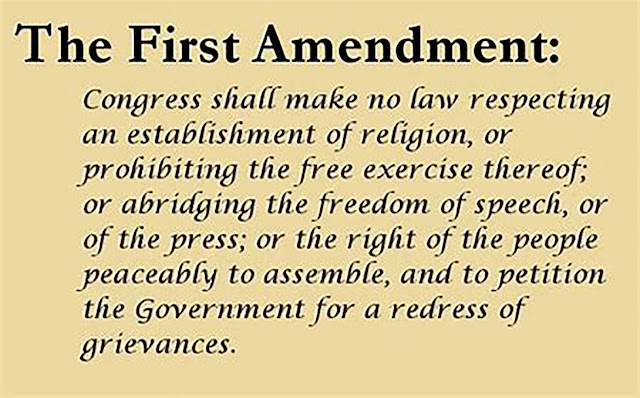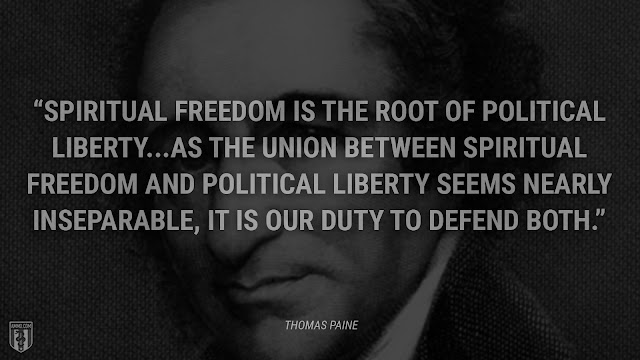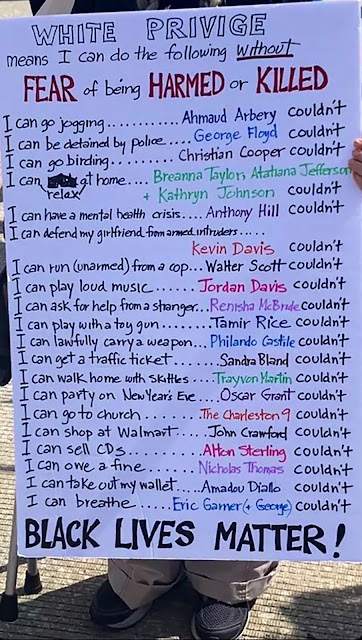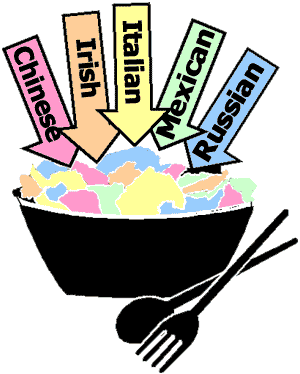Freedom of Religion: do we really have it? During our passage from Juneteenth to the Fourth of July this year, I’ve been thinking a lot about the First Amendment to the U.S. Constitution’s Bill of Rights. And especially the specific freedoms it enshrines.
The “Defund or Abolish the Police” movement has driven me (along with many others) to take some long, hard looks at the institution of policing, its history, and what it could become, if remade in a better way.
But—also in light of recent events—I’ve begun to wonder: Is the First Amendment just as aspirational as the police motto “To Protect and Serve”? In this and several future posts, I’ll consider our ideals, and how they add up next to our reality.
 |
| Many thanks to Indivisible of Door County, WI |
Freedom of Religion
Today’s post interrogates the first sentence in the First Amendment (not using the Reid Technique).
“Congress shall make no law respecting an establishment of religion, or prohibiting the free exercise thereof,” is how the First Amendment begins. Yet, for much of our history, Americans have—and still do—strenuously seek to limit, abridge, and deny the religious freedom of others.

Many thanks to Imgflip and Marshal Tenner Winter for this image.
Black people
Since well before the birth of the United States as a country Black people were enslaved in North America. Freedom of religion was one of the many freedoms they were denied.It didn’t ultimately work. The Black Church became a powerful force for freedom. But those slaveowners and their enablers gave religious suppression a real good shot. And they successfully stamped out a lot of African beliefs, or forced them to “go underground.”
 |
| Many thanks to Ammo.Com. |
Native Americans
The American authorities made far fewer bones about suppressing Native American spiritual and religious beliefs. "Freedom of religion for Indians" was never a consideration, even well into recent times.
They didn’t go about it quite like European invaders in what would be Mexican territories. Those “missionaries” enslaved and forcefully converted the Indians under their control.
But the US Government focused increasingly virulent ethnic cleansing energy on “pagan” ceremonies, starting in the 1830s. They made many practices illegal, punishable by imprisonment.
They often forcibly kidnapped children and held them in boarding schools where their home languages, customs, and spirituality were brutally suppressed. This continued well into the 20th Century.
 |
| Right on, designer Mark Forton! This image is available on several products. |
Contemporary hate and intolerance
More recently, white supremacists have felt free to attack churches, synagogues, and temples. Using domestic terrorism to suppress religious diversity flies in the face of the First Amendment, but law enforcement usually has focused on the egregious violence to persons and property. I wrote about this last year on my Artdog Adventures blog. |
| Many thanks to Human Rights Watch for this map. |
Some people welcome these laws and court rulings as "freedom of religion." But many others see them as "freedom to discriminate."
How far have we really come?
IMAGE CREDITS:














